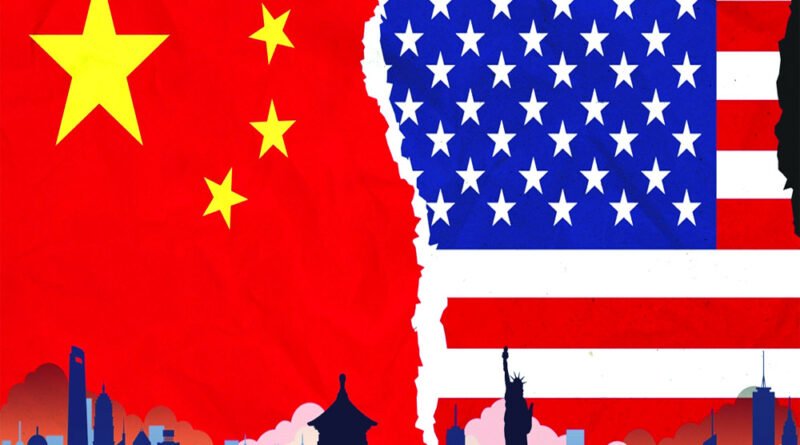China resorts to ‘buying’ support
Globally, China is rapidly gaining influence over the US and asserting its diplomatic muscle by investing disproportionately in seedy regimes
In 2000, China accounted for less than 2% of South America’s exports which spiralled thereafter at over 30% annually to reach $180 billion in 2010, $450 billion by 2021, and expected to exceed $700 billion by 2035! Beijing is now South America’s top trade partner with countries like Chile accounting for nearly 40% of their exports to China. It didn’t happen by chance, but by concerted Chinese design. China had invested disproportionately and knowingly with a ‘no-strings-attached’ policy that necessitated no preachy conditions or reform insistence. This leniency appealed to a host of illiberal and undemocratic regimes (e.g., pariahised Venezuela was given loans of more than $64 billion, causing fears of a debt trap to arise). China’s internal ‘South-South cooperation’ policy was further bolstered by the inclusion of initiatives like the Belt and Road Initiative (BRI) or even the more recent ‘Covid-19 diplomacy’ that ensured transactional support and investments. Besides the reciprocal gratification of raw materials and the emergence of an alternative power centre, China replaced US control and assert its diplomatic muscle and leverage on the world stage.
One obvious element of quid pro quo sought by the Chinese for loosening their purse strings in economically struggling South America was the switch to derecognize its nemesis Taiwan (Republic of China) to the ‘One-China’ policy (with the assumption that Taiwan is an essential part of the Chinese mainland, to be reunified one day). South American countries were especially in large numbers among those who recognised Taiwan as the Chinese had little or no leverage, historically – today, with its deep pockets and flexing of bargaining muscle, one South American country after the other flipped sides in favour of China. Oddly enough, even the US and India remain vested in the ‘One-China’ stance, grandstanding and sabre-rattling notwithstanding.
Honduras became the latest to fall prey to the Chinese ‘buyout’ as its President, Xiomara Castro, did a brazen flip-flop within weeks of downplaying rumours of a switchover. Xiomara remained garbled in her justification, “a sign of my determination to fulfil the government plan and expand borders”, but her foreign minister, Eduardo Reina, did some plain speak when he said that the switchover was about, “pragmatism, not ideology” and that Honduras was in desperate need of finances as its urgent requirements were, “drowning the country”! This leaves the shrinking list of those countries that still recognise Taiwan to just 13 out of the 193 UN member states i.e., the Marshall Islands, Nauru, Palau, Tuvalu, Belize, Guatemala, Haiti, Paraguay, the Federation of Saint Christopher and Nevis, St Lucia, Eswatini, the Holy See and St Vincent and the Grenadines. Access to the Chinese market and Treasury triumphs over all moral and diplomatic positions. Ironically, Taiwan remains formally unrecognised even by its most prominent allies, the USA (despite bipartisan unity on Taiwan). Jimmy Carter’s abandonment of diplomatic ties with Taiwan to recognise Beijing instead, initiated a complexity and absurdity of relationship that the USA continues to grapple with as it supplies weapons to a nation that it does not fully recognise.
China’s unofficial mouthpiece, Global Times noted bluntly, “The US does not have enough resources to assist Honduras or make any effective pledges to Honduras in exchange for Honduras’ change of mind. The case of Honduras shows that as long as countries stay firm, US obstruction and interference will not work. This will have a domino effect on Taiwan’s remaining “allies” such as Guatemala, Belize and Paraguay.” The Chinese have no qualms about simply ‘buying out’ the last bastions in South America, as the USA cannot make a counteroffer that is financially attractive enough to spurn Beijing’s advances. As if to confirm its intent, the Global Times concludes, “The sleepwalking of “Taiwan independence” is ending.”
Taiwan or its allies in Capitol Hill cannot compete with the Chinese coffers and are getting outbid, but that does not mean that there are no underlying concerns in accepting the Chinese terms. The reality of Chinese debt traps is legendary and short-term bailouts do not end well. Micronesia’s outgoing President, David Panuelo had accused Beijing of ‘political warfare’ by insinuating that it was interfering and preventing the switchover from China to Taiwan. China remains hypersensitive to the Taiwan issue and shows very short patience with what it insists are its internal issues. Recent developments in the wars in Afghanistan and Ukraine have exposed the limits of the so-called ‘superpowers’ ability to take over and control the targeted landmass infinitely. Therefore, ensnaring and controlling those regions through ‘buyouts’ is decidedly easier, and even more sustainable.
Honduras recognised the Taipei government for 82 years. However, the wanton lure of a hydroelectric dam and billions of dollars in ‘aid’ was irresistible. Not too many believe the Chinese line of Honduras sees through ‘Washington’s bullying diplomacy’ as the pattern and accompanying terms of the switchover are eerily consistent and seemingly generous (initially). The price for the switchover was the upfront admission by the Honduran authorities that there is “only one China in the world”. The days of principled diplomatic stands are over, and commerce and coercion define the new global order. China is the high temple of realpolitik.
(The writer, a military veteran, is a former Lt Governor of Andaman & Nicobar Islands and Puducherry. The views expressed are personal)
Source: The Pioneer




